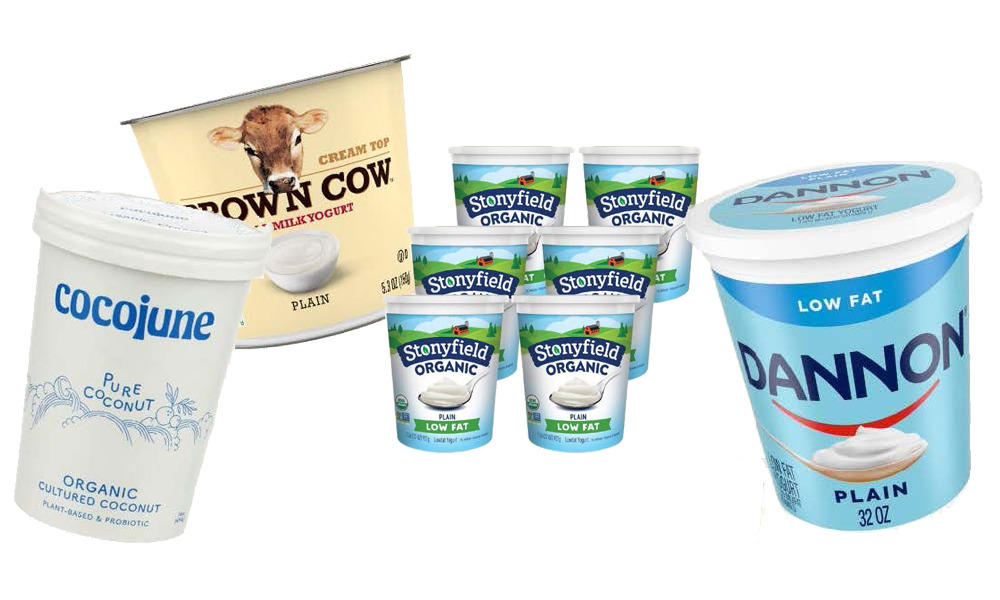Yogurt is a tasty, nutritious, and versatile food that deserves a spot in your kidney friendly kitchen!
Six Reasons Yogurt is a Kidney Friendly Food
- Protein: Yogurt provides good quality protein, but not too much. A 5 oz container of yogurt contains only 7 grams of protein and supplies all of the essential amino acids.
- Low Acid: Yogurt generates a minimum amount of acid when metabolised. This is important in the context of CKD where acid build up is a concern.
- Good for Bone Health: CKD can lead to disturbances in bone metabolism which can eventually lead to weak, brittle bones. To maintain bone health, you need to take in approx. 1000-12000 milligrams of calcium every day. 1 serving of yogurt will provide over 20% of this requirement.
- Good for Blood Pressure: Yogurt is an excellent source of calcium, and calcium is good for blood pressure! Calcium plays a pivotal role in blood pressure by making the muscles in our blood vessels squeeze and relax, helping to keep the right balance and flow of blood throughout the body.
- Good for the Gut: Yogurt contains live, active cultures, otherwise known as ‘probiotics.’ Probiotics are especially helpful in the context of kidney disease due to research showing that may reduce toxin build up and inflammation.
- Convenient: It’s nice to have convenient options available for when life gets overwhelming. Yogurt works as a great ‘no cook’ meal. Add some fruit, top with some nuts or seeds, and you have a complete meal!
But What About the Phosphorus?
Yogurt does have phosphorus and it’s true that we do need to limit this on a kidney friendly diet. However, this doesn’t mean we can’t have yogurt, it simply means we have to be mindful of portion size. A serving of yogurt will contribute about 20% of your total phosphorus intake for the day. If you are limiting other high phosphorus foods such as meat, poultry, fish, cheese and processed foods, your diet will have room for 1 serving of yogurt per day.
Best Options
- Regular yogurt, not Greek or Icelandic. I generally recommend avoiding Greek and Icelandic due to the higher protein content in these yogurts. However, these can work if you only plan on using a little, such as in a dip or a dressing.
- Unflavored, as flavors usually mean higher sugar content. If you are already scrunching your face at the thought of the tart taste of plain yogurt, know that you can top with fruit or add a teaspoon of honey, maple syrup or stevia to sweeten it.
- Coconut yogurt is a great option for those with advanced CKD who need to keep protein low. Coconut yogurt is very low in protein and yet high in calories. The one caveat is its saturated fat content. I recommend avoiding coconut yogurt if you struggle with high cholesterol.

